This article contains spoilers for the Guardians of the Galaxy franchise of movies in its discussion of character imperfection. Guardians of the Galaxy Vol. 3 spoilers are fairly light until the last two paragraphs!
Towards the second act climax of Guardians of the Galaxy Vol. 3, Peter Quill (Chris Pratt) interrupts a motive rant from the villainous High Evolutionary (Chukwudi Iwuji). Peter understandably has little time for genocidal monsters offering facile justifications for their schemes to take over the universe. However, the High Evolutionary makes a point to correct Peter. “I’m not trying to conquer the universe,” he tells the hero. “I’m perfecting it.”
James Gunn’s Guardians of the Galaxy franchise stands apart from a lot of modern superhero media because the three films make an aggressive argument for the virtues of imperfection. The modern superhero blockbuster is the product of an overwhelming corporate machine. These movies cost so much and carry so much risk that they have to be perfect.
This desire for perfection is reflected in how these movies come together. Physically, it seems that every actor in these movies has to be sculpted into an Adonis, with the first Guardians of the Galaxy transforming Chris Pratt from the cuddly guy on Parks and Recreation to pure shredded wheat. The movies themselves are rigorously focus-grouped and often dramatically reworked in post-production. They aspire to the same visual and aural aesthetic. The urge to give a young audience what they want leads these movies to come pre-memed.
This quest for perfection has a cost. This year, New York Times film critic A.O. Scott announced a move to the paper’s book section. For Scott, part of the issue was the generic polish of franchise fare. “If what criticism is is having an argument with or about a movie, the attempt to create argument-proof movies that no one will argue about, that no one will argue with, I think that’s very troubling to me,” he conceded. Several years earlier, he’d noted, “With Marvel, the only option is submission.”
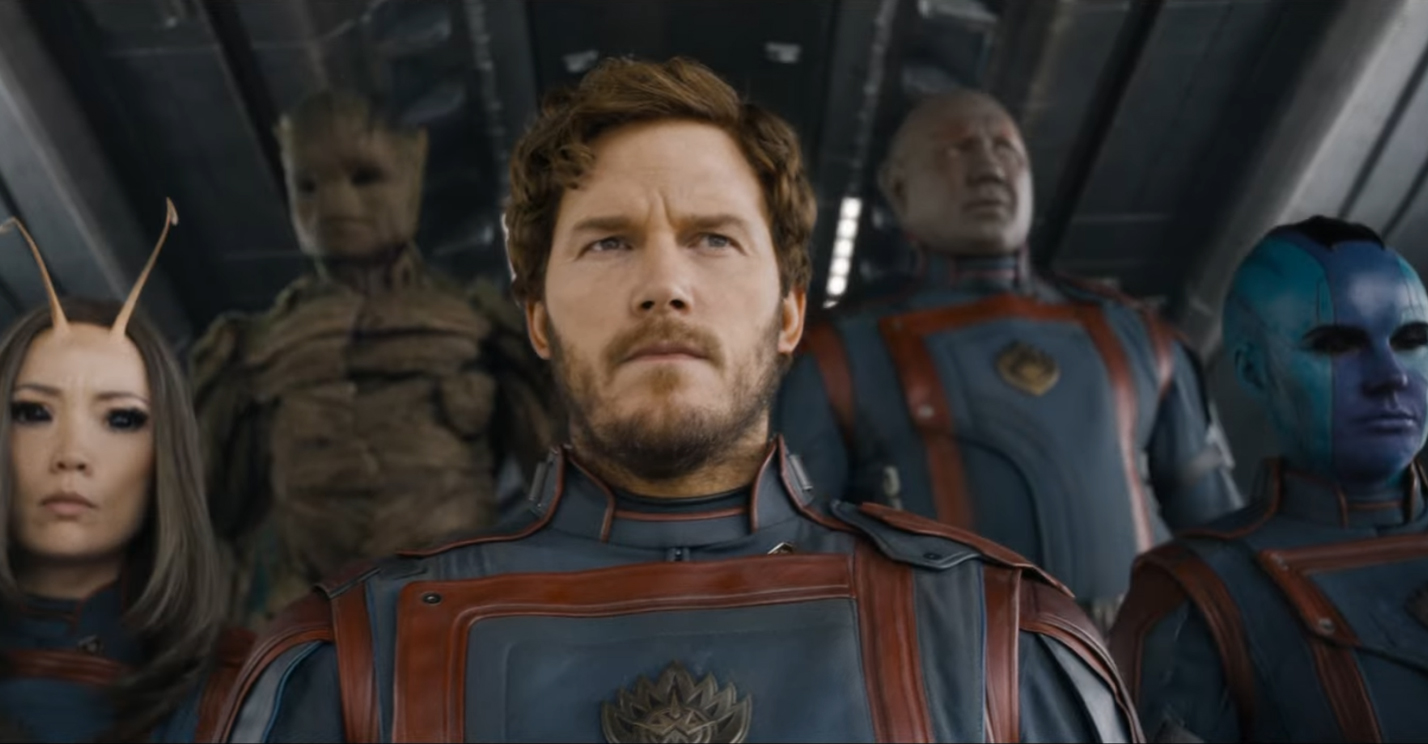
Reflecting that desire for perfection, the protagonists of these movies are presented as paragons rather than people. In Captain America: The First Avenger, Steve Rogers (Chris Evans) is framed as a hero from the outset, the super soldier formula giving him a perfect body to complement his pure soul. Thor (Chris Hemsworth) is continuously assessed by his magical hammer, which constantly reassures him that he is “worthy,” even when Jane (Natalie Portman) wields it in Thor: Love and Thunder.
Even disreputable heroes have their rougher edges sanded down. The Hulk (Bruce Banner) goes from a public menace to a celebrity snapping diner selfies with adoring fans. When Scott Lang (Paul Rudd) is released from prison in Ant-Man, it is made clear that he is a “good” thief, who was arrested for forcing an evil company to refund customers that it exploited. Even Tony Stark (Robert Downey Jr.) becomes increasingly wholesome, as later movies tone down the character’s alcoholism and womanizing.
There is an irony in this push towards a bland perfection within the Marvel Cinematic Universe. For decades, the Marvel Comics brand was built on the idea of its characters as human and flawed. “If you can have a good guy who’s got hang-ups and flaws and failings, he’s more interesting because he not only has to defeat the villain, but he has to defeat and conquer his own flaws and inabilities,” explained Stan Lee. “It rounds him out and makes the character empathetic.” This was particularly true in contrast to the god-like heroes of DC.
The Guardians of the Galaxy movies are built around the idea of imperfection. The heroes of these movies are deeply and fundamentally flawed people. Early in the first film, Denarian Garthan Saal (Peter Serafinowicz) describes the team as “a bunch of A-holes.” Later on, trying to rally the group to save the day, Peter confesses, “I look around at us, you know what I see? Losers.” He clarifies that he means “folks who have lost stuff,” but it’s still miles from how one might describe the Avengers.
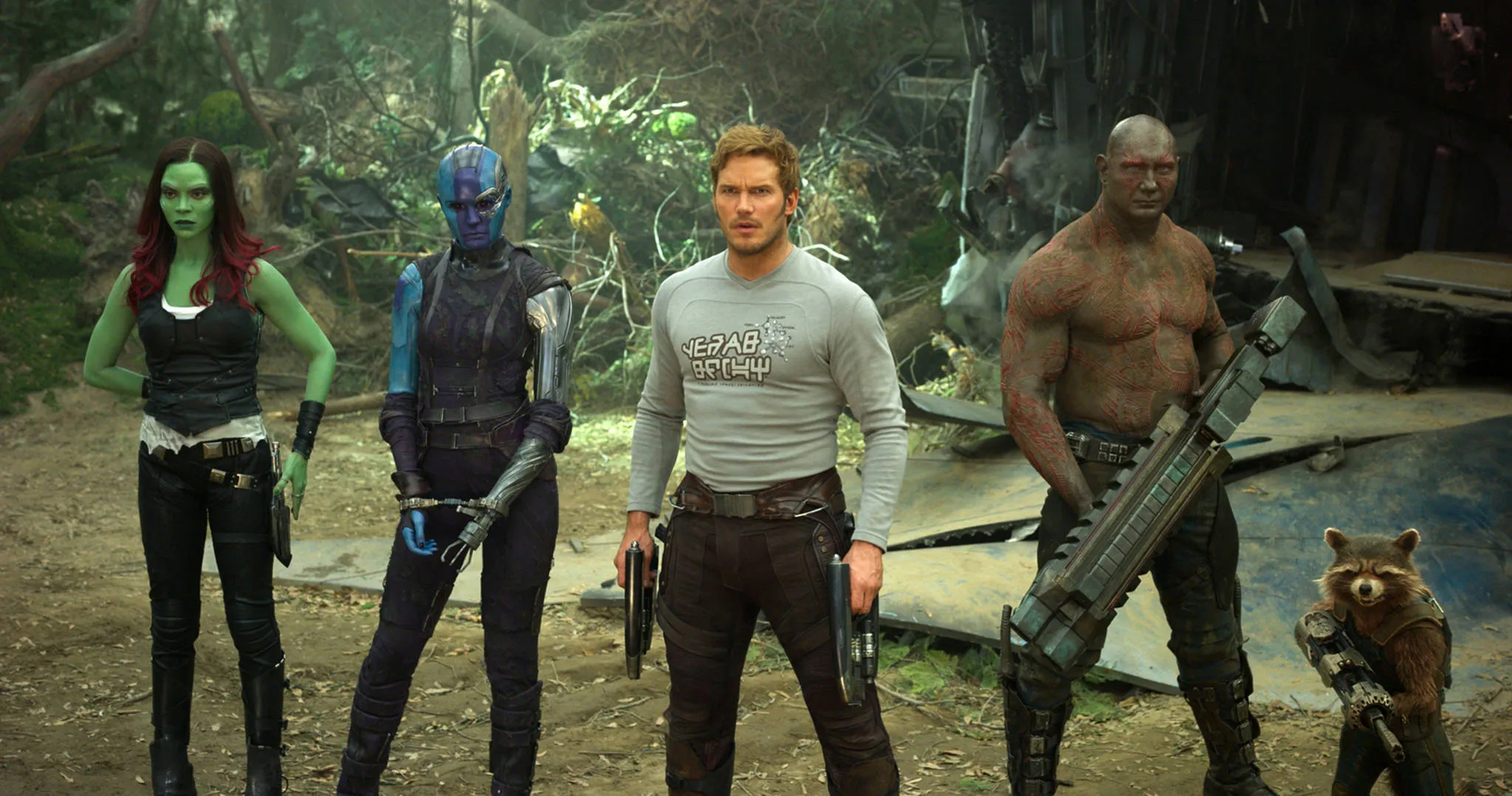
These are not nice people. Many of these are not even functional people. Peter Quill is introduced double-crossing his surrogate father, Yondu (Michael Rooker). Yondu was exiled from the Ravagers because he traded in children for Ego (Kurt Russell). Drax the Destroyer (Dave Bautista) is so obsessed with his quest for revenge against Ronan the Accuser (Lee Pace) that he summons Ronan to attack the civilian population on Knowhere. These aren’t paragons of virtue. They aren’t idols.
The franchise’s supporting cast grows to include a menagerie of freaks and failures. Gamora (Zoe Saldaña) and Nebula (Karen Gillan) are the daughters of Thanos the Mad Titan (Josh Brolin). Kraglin (Sean Gunn) is a good-natured idiot who accidentally prompts a mutiny against Yondu, resulting in the deaths of many of his friends. Mantis (Pom Klementieff) is complicit in Ego’s evil schemes, with the monstrous Celestial murdering hundreds of his own children. Adam Warlock (Will Poulter) is a physically perfect specimen, but one removed early from his cocoon by the High Evolutionary and so left without morality or intelligence.
This theme of imperfection is such a consistent throughline in the Guardians of the Galaxy franchise that it even applies to The Guardians of the Galaxy Holiday Special, in which Mantis and Drax kidnap Kevin Bacon (himself) to help cheer up Peter. The feel-good premise itself is imperfect, with Peter lamenting, “This isn’t a Christmas gift! This is human trafficking!” Beyond that, a big emotional beat in the special is Drax and Mantis realizing that Bacon isn’t a perfect hero; he’s just “a disgusting actor.” Still, it ultimately all works out.
Indeed, while the heroes of the Guardians of the Galaxy movies are defined by their imperfection, the villains are often presented as monsters chasing perfection. At the start of Guardians of the Galaxy Vol. 2, the High Priestess of the Sovereign (Elizabeth Debicki) muses on Peter’s “reckless” genes. Peter’s imperfect makeup is a concept alien to the gold-skinned Sovereign, as she explains, “Every citizen is born exactly as designed by the community. Impeccable, both physically and mentally.” It’s horrific.
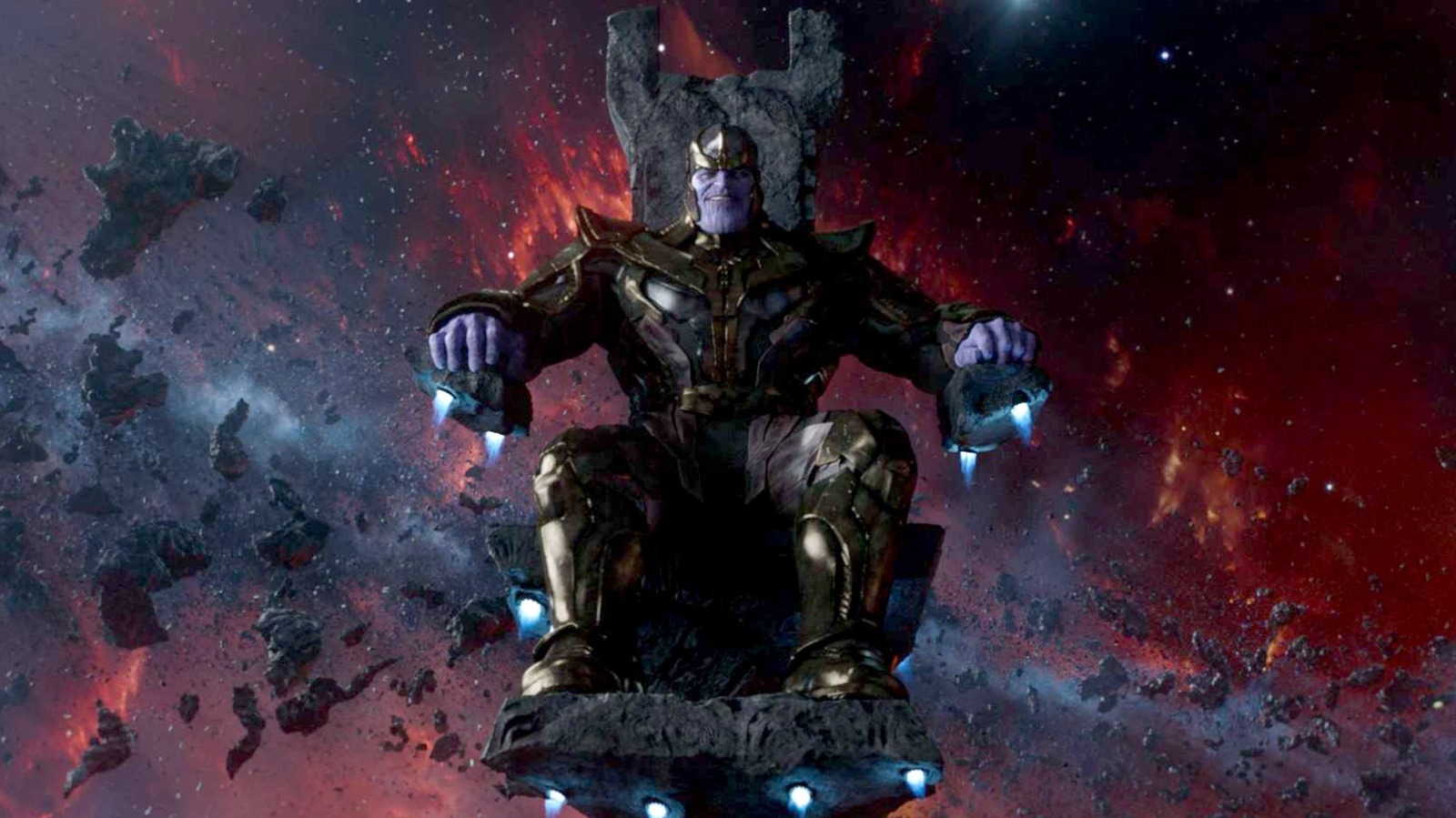
One of the franchise’s recurring motifs is the idea that despite their dysfunctions, these characters face the continuous pressure to be perfect or to be perfected, often from abusive parental figures. Thanos would force Gamora and Nebula to fight for his approval. Nebula would always lose, prompting Thanos to take her apart piece by piece, replacing her with machinery in the hope that he might manufacture a daughter that was fit for his cosmic purpose. Adam was grown to specification as a weapon to defeat the Guardians.
Rocket was the result of genetic experimentation by the High Evolutionary, part of efforts to build “a utopia.” In Guardians of the Galaxy, Rocket’s account of this experience is very similar to Nebula’s. “I didn’t ask to get made!” he drunkenly laments. “I didn’t ask to be torn apart and put back together over and over and turned into some little monster!” Like Nebula, Rocket could never be perfect enough. The High Evolutionary planned to discard him, treating him as a failed experiment.
Peter has a similar relationship to his father in Guardians of the Galaxy Vol. 2. Ego is a Celestial, trying to create a child strong enough to wield his power. “Not one of them carried the Celestial genes,” Ego explains. “Until you, Peter.” Ego talks a lot about “meaning” and “purpose.” He aspires to high ideals. He explains how the song “Brandy” speaks to him. “The sea calls upon him as history calls upon great men,” he explains of the song’s narrator. Ego sees himself and Peter as “great men.”
In some ways, Ego’s plan in Guardians of the Galaxy Vol. 2 plays as a commentary on the power fantasy of Marvel Studios films like Captain America: Civil War. Ego has power and vision. Why shouldn’t he use it? “Only we can remake the universe,” he tells Peter. “Only we can take the bridle of the cosmos and lead it to where it needs to go.” Ego sees it as destiny. “You cannot deny the purpose the universe has bestowed upon you,” he warns Peter.
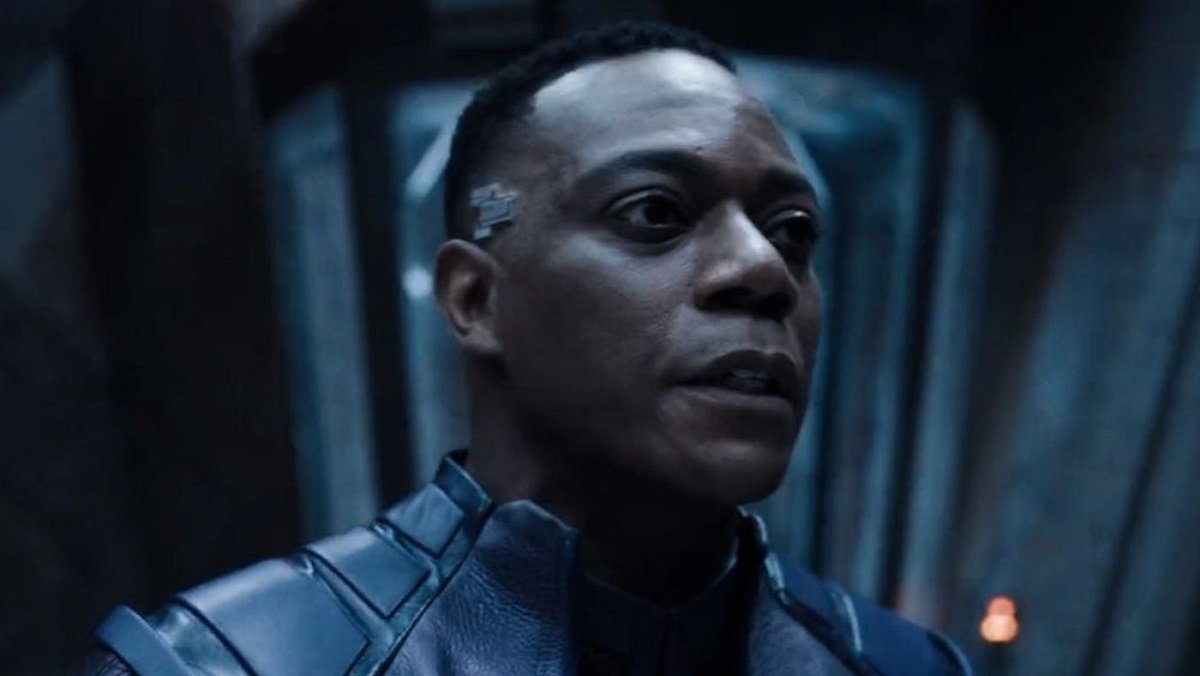
Both Ego in Guardians of the Galaxy Vol. 2 and the High Evolutionary in Guardians of the Galaxy Vol. 3 plan to create a perfected ordered cosmos as a monument to their vanity. The same is also true of Thanos to a certain extent, particularly in his aspiration to “see the sun rise on a grateful universe.” Each villain seeks to create a universe without conflict — Thanos by eliminating competition for resources, Ego by making the entire universe an extension of himself, the High Evolutionary by stripping humanity from Earth’s culture.
In some ways, this feels like a commentary on the growing cultural ubiquity of Marvel Studios and the way in which the production machine works. In particular, Ego’s desire to literally override existence with his own will plays as a somewhat prescient commentary on the “Marvel-ification” or “Marvel-ization” of larger pop culture, prefiguring debates about how the company’s house style and desire to create “argument-proof movies” has spread to larger pop culture.
Ego tells Peter that he is special and that he is perfect. He sells Peter on the power fantasy that defines so many modern comic book movies, telling his son that he can do whatever he wants. “Stop pretending you aren’t what you are,” Ego chides Peter. “One in billions, trillions, even more.” In their final confrontation, Ego warns Peter of the consequences of his rejection. “You are a god,” Ego tells his son. “If you kill me, you’ll be just like everybody else.” Peter replies, “What’s so wrong with that?”
The superhero film has become increasingly detached from humanity and reality. Despite their fantastical settings, the Guardians of the Galaxy movies celebrate humanity in all its imperfection. Guardians of the Galaxy begins with Peter rejecting reality, retreating into fantasy following the death of his mother (Laura Haddock). However, the later films see Peter journeying back to that humanity. In Guardians of the Galaxy Vol. 2, he rejects godhood. At the end of Guardians of the Galaxy Vol. 3, he finally returns home to reunite with his grandfather (Gregg Henry).
The Guardians of the Galaxy franchise often finds its heroes struggling against the very idea of perfection. In that struggle, they find a warmth and humanity that is often missing from these kinds of movies.

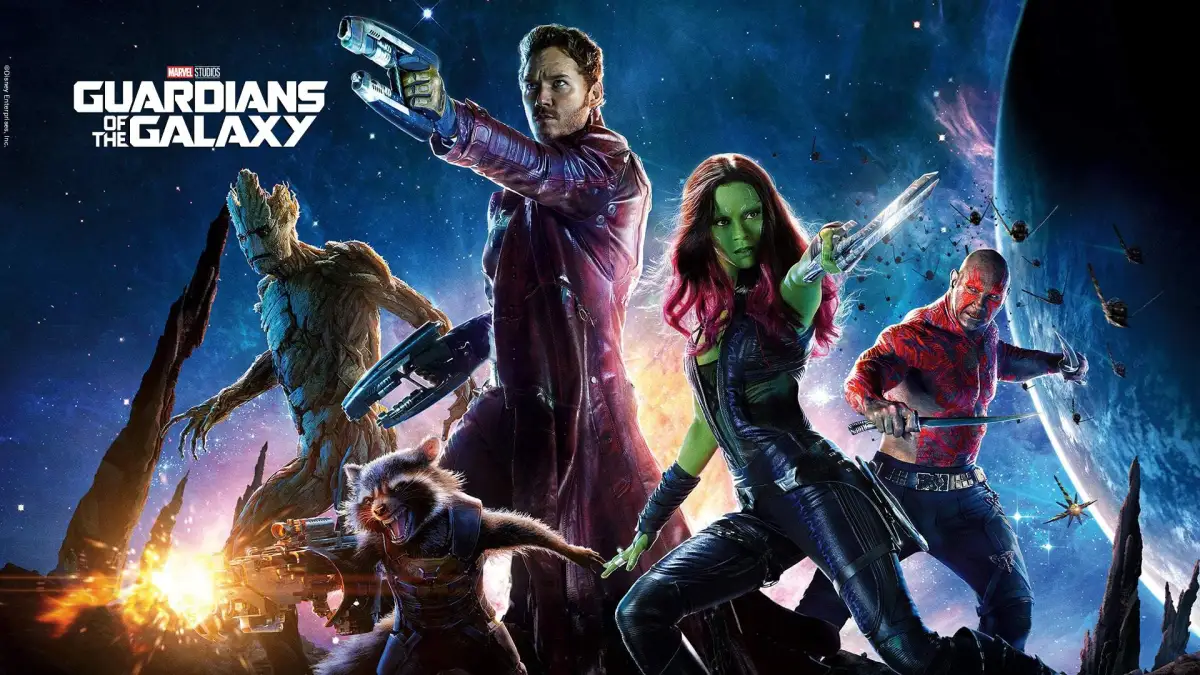




Published: May 6, 2023 11:00 am